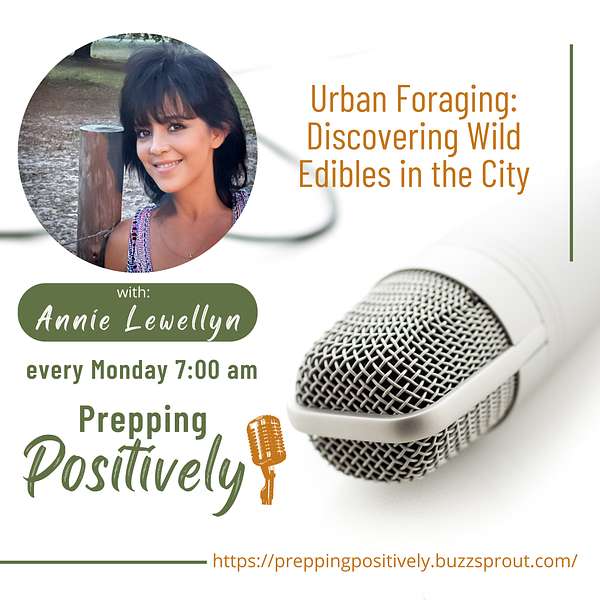
Prepping Positively
Prepping skills taught on a positive note. From growing your own food and stocking a prepper pantry, to providing your own water and electricity and making your own natural remedies, learn the prepping skills you need to sustain you and your family through any crisis.
Prepping Positively
Urban Foraging: Discovering Wild Edibles in the City
Join me in uncovering the hidden treasures of wild edibles right in the heart of the city, transforming concrete jungles into edible landscapes.
Join me in uncovering the hidden treasures of wild edibles right in the heart of the city, transforming concrete jungles into edible landscapes.
Hello, and welcome back to Prepping Positively. I'm Annie, your host, and today we're embarking on a fascinating journey - urban foraging.
Let's start by understanding why urban foraging is an exciting and valuable skill. Cities are filled with edible plants that often go unnoticed. By learning to identify and safely forage for wild edibles, you not only connect with nature in unexpected places but also add a nutritious and diverse range of foods to your self-reliant lifestyle.
First and foremost, safety is paramount in urban foraging. Stick to areas free from pollution, pesticides, and other contaminants. Parks, community gardens, and green spaces are often rich foraging grounds. Always be sure you have permission to forage in a particular area and respect local regulations.
Now, let's explore some common wild edibles you might find in urban environments. Dandelions, purslane, and chickweed are often abundant and nutritious. Learn to identify these plants, and you'll have versatile ingredients for salads, soups, and more.
Trees in the city can be a surprising source of edible treasures. Consider exploring the world of urban fruit trees like apple, plum, or cherry trees. Edible flowers like violets and nasturtiums can add color and flavor to your meals. Remember to gather responsibly, taking only what you need and leaving enough for wildlife and other foragers.
Before you start foraging, invest time in learning to identify plants accurately. Field guides, online resources, and local foraging groups can be valuable tools. Pay attention to distinguishing features, growth patterns, and any look-alike plants that may be toxic.
Timing is key in urban foraging. Different plants have peak seasons when they are most abundant and flavorful. Research the specific seasons for the wild edibles in your area, ensuring a successful and sustainable foraging experience.
As a rule of thumb, start with small quantities and introduce new wild edibles into your diet gradually. Some individuals may have allergies or sensitivities to certain plants. Listen to your body and consult with experts if needed.
Engage with the urban foraging community in your area. Local foraging groups often organize walks, workshops, and events where you can learn from experienced foragers. Connecting with like-minded individuals enhances your knowledge and builds a sense of community.
As we wrap up today's episode, remember that urban foraging is not just about finding food; it's a journey of discovery, connection, and embracing the abundance that nature offers, even in the midst of the city. In upcoming episodes, we'll delve deeper into specific urban foraging techniques, recipes, and the art of incorporating wild edibles into your self-reliant lifestyle.
Thank you for joining me on this adventure in urban foraging today on Prepping Positively. If you enjoyed this episode, please subscribe, leave a review, and share it with fellow urban explorers and foragers. Until next time, keep prepping positively, and may your cityscape be a playground of edible delights!